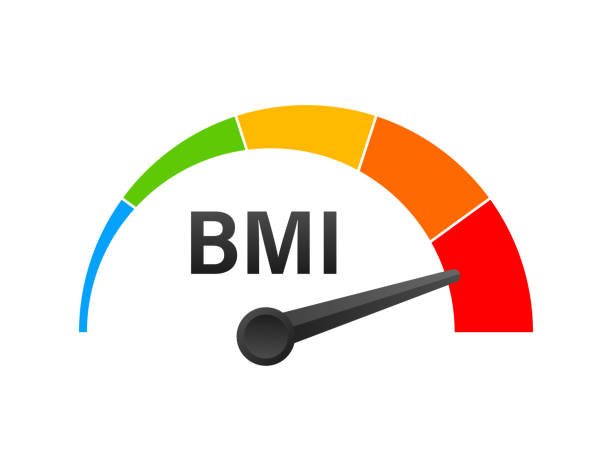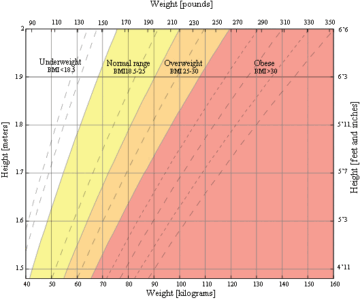BMI Calculator For Health
This BMI Calculator gives you accurate result for health. Discover your BMI, understand its implications for your health, and learn how to manage it effectively. Get expert insights and tips for a healthier you!

BMI Calculator
BMI Calculator: Your Guide to Better Health
Introduction
Welcome to our BMI Calculator page, where you can gain valuable insights into your health and wellness journey. Body Mass Index (BMI) is a vital metric used to assess an individual’s weight relative to their height.
Understanding your BMI can help you make informed decisions about your health, diet, and fitness goals.
What is BMI?
BMI is a measure of body fat based on your weight and height. It is calculated by dividing your weight in kilograms by the square of your height in meters (BMI = weight / height^2).
The resulting number indicates whether you are underweight, normal weight, overweight, or obese, helping you gauge your risk of various health conditions.
BMI Categories
BMI categories include underweight (BMI < 18.5), normal weight (BMI 18.5-24.9), overweight (BMI 25-29.9), and obese (BMI ≥ 30). Each category carries different health implications, highlighting the importance of maintaining a healthy weight range.
Why Use Our BMI Calculator?
Our BMI Calculator offers a user-friendly interface and accurate calculations based on scientific formulas. Here’s why it’s beneficial:
- Easy to Use: Simply enter your weight and height, and our calculator will do the rest.
- Instant Results: Get instant BMI readings with clear interpretations.
- Health Insights: Understand what your BMI means for your overall health and wellness.
- Goal Tracking: Use BMI as a tool to track your progress towards a healthier weight.
Other Calculator Links >
BMI chart for adults
This is a graph of BMI categories based on the World Health Organization data. The dashed lines represent subdivisions within a major categorization.

BMI formula
Below are the equations used for calculating BMI in the International System of Units (SI) and the US customary system (USC) using a 5’10”, 160-pound individual as an example:
USC Units:
SI, Metric Units:
| |||||||||||||||||||||||||||||||||
How to Interpret BMI Results
Once you receive your BMI calculation, here’s how to interpret the results:
- Underweight: BMI below 18.5 indicates underweight and may suggest a need for increased nutrition.
- Normal Weight: BMI between 18.5 and 24.9 suggests a healthy weight range for most adults.
- Overweight: BMI between 25 and 29.9 indicates overweight and may pose health risks.
- Obesity: BMI of 30 or higher suggests obesity and may increase the risk of various health conditions.
Using BMI for Health Goals
BMI is a valuable tool for setting and achieving health goals. Here’s how you can use it effectively:
- Weight Management: Use BMI to set realistic weight loss or weight gain goals.
- Fitness Assessment: Monitor changes in BMI to assess the effectiveness of your fitness routines.
- Health Monitoring: Track BMI over time to ensure you’re maintaining a healthy weight.
Tips for Maintaining a Healthy BMI
Maintaining a healthy BMI involves adopting a balanced diet, engaging in regular physical activity, managing stress levels, prioritizing sleep, and seeking regular medical check-ups. Small lifestyle changes can significantly impact BMI and overall health outcomes.
Frequently Asked Questions (FAQs) About BMI and BMI Calculators

Body Mass Index (BMI) is a numerical value calculated from a person’s weight and height. It is used to assess body fat and categorize individuals into different weight status categories, such as underweight, normal weight, overweight, and obesity.
BMI is calculated using the formula: BMI = weight (kg) / height (m)^2. For example, if a person weighs 70 kilograms and is 1.75 meters tall, their BMI would be calculated as 70 / (1.75^2) = 22.86.
Your BMI value indicates your weight status category:
- BMI below 18.5: Underweight
- BMI between 18.5 and 24.9: Normal weight
- BMI between 25 and 29.9: Overweight
- BMI of 30 or higher: Obesity
While BMI is a useful tool for assessing weight status on a population level, it may not account for individual variations in body composition, muscle mass, and other factors. It is best used in conjunction with other health assessments for a comprehensive view of health.
BMI calculators for children and teens use age- and gender-specific growth charts to assess BMI-for-age. These calculators help determine if a child or teen is at a healthy weight based on their age and gender.
It is recommended to check your BMI periodically, especially if you are undergoing weight management or fitness programs. Regular monitoring can help track progress and guide adjustments to your health goals.
If your BMI indicates overweight or obesity, it’s essential to consult with healthcare professionals or nutritionists for personalized advice. They can help create a tailored plan for weight management, including diet, exercise, and lifestyle changes.
LegalMate BMI calculators provides accurate estimates based on the information entered, but they should be used as a general guide. For precise health assessments and recommendations, consulting healthcare professionals is recommended.
Yes, BMI can change over time due to factors such as weight fluctuations, changes in muscle mass, aging, and lifestyle habits. Regularly monitoring BMI can help track these changes and guide health decisions accordingly.


